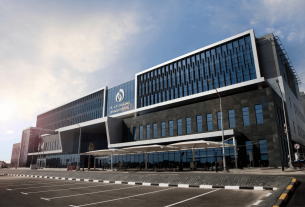Dr. Vidyalekshmy R
Senior Consultant & Coordinator
High Risk Pregnancy & Fetal Medicine
KIMSHEALTH Trivandrum
High-risk pregnancies place women and their developing fetus at the highest risk for morbidity and mortality. The global MMR in 2020 was estimated at 223 maternal deaths per 100,000 live births, down from 227 in 2015 and from 339 in 2000. Maternal Mortality Ratio (MMR) of India reduced from 103 per 100,000 live births in 2017-19 to 97 per 100,000 live births in 2018-20. About 1.3 million maternal deaths were estimated among Indian women in the last two decades accounting for 12% of global maternal deaths. The majority of maternal deaths were due to direct medical causes. Factors such as severe bleeding (47.0%), pregnancy-related complications (19.6%), infection or sepsis (12.0%), pregnancy-induced hypertensive disorders (7.0%), and abortions (5.0%) were the leading causes of maternal deaths in India. Early identification of a high risk pregnancy and timely referral to a MFM -Maternalfetal medicine specialist and unified effort with a multi-disciplinary team in management of the complication, does have a pivotal role in reducing the maternal & neonatal mortality and morbidity.
There are many factors that can contribute to a pregnancy being considered high-risk and these includes maternal age (being younger than 17 or older than 35), pre-existing medical conditions (such as diabetes, hypertension or heart disease), a history of previous pregnancy complications, multiple pregnancies (such as twins or triplets) and certain lifestyle factors (such as smoking, alcohol use or drug use).
Maternal-fetal medicine (MFM) focuses on managing health concerns which a mother and fetus may experience before, during, and immediately after pregnancy. These specialists have an advanced knowledge of complications in pregnancy, be it medical, surgical, or genetic.
– Pre conceptional Counselling
– Aneuploidy screening – 11 to 14 weeks scan and double marker test.
– Detailed anomaly scan – 18 weeks
– Management of Pregnancy associated diseases.
– Fetal surveillance
– Formulate a plan on how to proceed the antenatal care as well time and mode of delivery
– Multidisciplinary team approach
Pre conceptional Counselling
Preconception counseling is defined as health education risk assessment, intervention, and medical optimization before pregnancy to reduce the chances of poor obstetric, maternal, and fetal outcomes. It is vital for the mother to remain healthy before and during pregnancy so as to give birth to a healthy baby. There can be various pre-existing diseases, risk factors, and unhealthy lifestyle habits which need to be modified before planning pregnancy.
– Optimising the pre-existing disease in the expectant mother eg: chronic renal disease, overt DM, chronic Hypertension.
– Identifying medication the woman is already taking and in such cases changes it to a non-teratogenic medicine safe for planning pregnancy after discussion with a multidisciplinary team eg : Anti-epileptic medicines , Immunomodulators like MMF
– Addresses the Genetic diseases running in family or in couple which may be carried down to the offspring. Also addresses the various pre conceptional / prenatal diagnostic testing that can be offered for such couples.
– Various pre conceptional vaccines to diseases the expectant mother is not immune to and such diseases which if occurred in pregnancy can have detrimental effect in mother and fetus eg: rubella, chicken pox vaccine.
– Screening for infectious diseases in couple eg: HIV, hepatitis
– Identifies complications from previous pregnancies, e.g pre-eclampsia, pre-term births, recurrent pregnancy loss and problems with the foetus e.g birth defects, Genetic disorder.
Aneuploidy screening
– First trimester screening for Aneuploidy in fetus involves scan coupled with the double marker (a blood test of the mother analysing the biochemical markers of aneuploidy)
– A precise method of assessment, fulfilling the criteria for calculating NT has a great influence on the report of FTS. They also provide further diagnostic testing in fetus like Chorionic villus sampling & Amniocentesis once the screening is tested positive.
Detailed anomaly scan
MFM specialist are trained in targeted anomaly scan, also known as a TIFFA scan or target scan which is a comprehensive ultrasound exam of the fetus that takes place around the 18-20th week of pregnancy.The scan’s main objectives are
– Detect serious and potentially fatal anomalies
– Suggest the possibility of an abnormality that requires more testing or serial scans
Therapeutic procedure on Fetus
Intra uterine fetal procedures include invasive and non-invasive procedures that can treat fetal conditions. The various such procedures are :
● Transplacental drug delivery – Drugs given to the mother pass through the placenta to the fetus.This can treat conditions such as fetal lung maturation, and cardiac arrhythmias.,fetal brain maturity.
● Intrauterine fetal blood transfusion: A needle is placed through the mother’s abdomen into a fetal blood vessel to provide blood, platelets, or medications to the fetus. This treatment is used to keep an Rh-positive fetus healthy when the mother’s immune system is destroying its red blood cells
● Fetoscopic laser photocoagulation: A small instrument equipped with a laser is inserted into the mother’s amniotic cavity to burn off abnormal blood vessel connections in the placenta. This treatment is used to treat twin-to-twin transfusion syndrome (TTTS).
● Percutaneous shunts: A hollow tube is inserted through the mother’s abdomen and uterus and into the fetus to drain fluid to the amniotic cavity.This treatment is used to treat urinary tract blockages
Management of Pregnancy associated diseases
Common complications associated with high-risk pregnancies include preeclampsia, gestational diabetes, multi fetal pregnancy, preterm labor, placenta previa, placental abruption and fetal growth restriction. Women with high-risk pregnancies may require more frequent prenatal visits so as to facilitate a healthy maternal milieu for the development of a healthy fetus. They formulate how to time the delivery as well as mode of delivery based on the consideration of various maternal-fetal complications.
A multidisciplinary team
High risk pregnancies require a multidisciplinary team effort which may include the Primary Obstetrician, MFM specialist, Neonatologist and any other specialist as the case may demand like Cardiologist, Cardiothoracic surgeon, Neuro-surgeon, paediatric neurologist etc.
Caring for complex obstetric patients presents many challenges to Primary obstetricians and care takers. With the increase in IVF pregnancy, increased maternal age, and lifestyle diseases, there has been a concurrent increase in the maternal mortality rates and near misses. Research has shown that approaches to reduce risk involve identifying those at high risk and using multidisciplinary care planning to optimize outcomes. Limited communication between Obstetricians, patient and nursing staff regarding high‐risk patients leads to mismanagement and ill preparedness of an adverse event. A proactive versus reactive approach to managing these patients is the need of the hour to reduce the global maternal and neonatal mortality, morbidity rates. Maternal Fetal medicine specialists act as the centre of care for these high risk pregnancy, collaborating the care of various disciplinaries under one umbrella, and helps formulate a detailed comprehensive care plan for the expectant mother.





